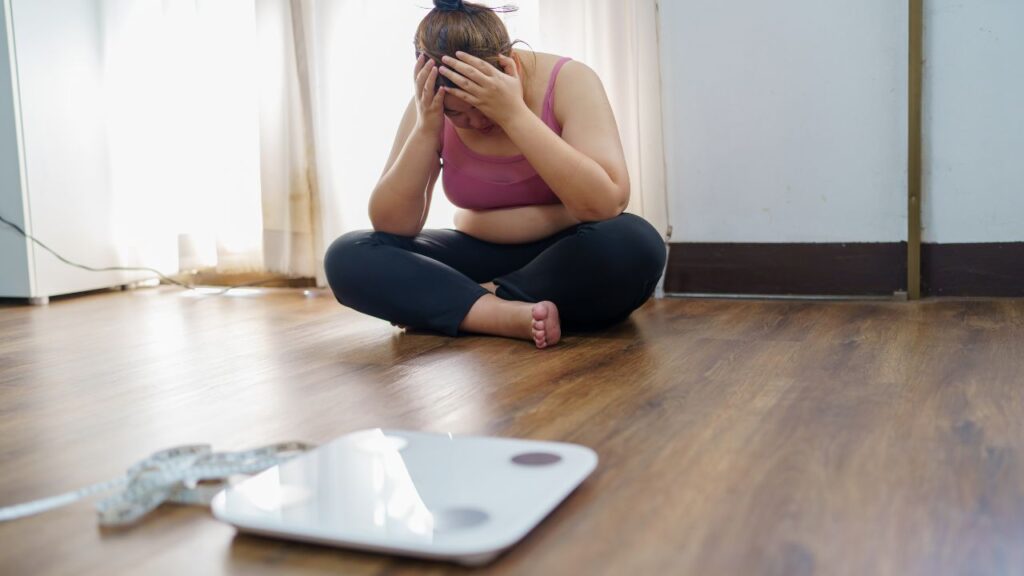
It’s common for many people to experience changes in their body during their menstrual cycle, and one of the most frequent concerns is whether you can actually put on weight while menstruating. If you’ve ever felt like you’re a bit heavier or bloated around that time of the month, you’re not alone. But is it real weight gain, or is it just temporary? Let’s break down what happens during your period, why it may feel like you’ve gained weight, and what you can do to manage it.
What Happens to Your Body During Your Period?
To understand why you might feel like you’re gaining weight during your period, it helps to know what’s happening hormonally and physically. A typical menstrual cycle lasts about 28 days, with the average period lasting anywhere from 3 to 7 days. This cycle is influenced by various hormones, including estrogen, progesterone, and prostaglandins, which regulate everything from ovulation to your body’s response to menstruation.
Hormonal Fluctuations and Their Effects
Hormones play a key role in why you might feel a bit heavier during your period. As your body prepares for menstruation, the hormone progesterone rises in the second half of your cycle (luteal phase), leading up to your period. When progesterone is high, your body retains more water and salt, which can make you feel bloated and heavier. This bloating is often temporary and doesn’t indicate actual weight gain. It’s more of an accumulation of excess water in the tissues.
Changes in Appetite and Cravings
Another factor that contributes to the perception of weight gain during your period is the change in appetite. Many people experience cravings for salty or sugary foods, and this can lead to overeating, which may cause temporary weight gain in the form of added food volume and water retention.
Is It Real Weight Gain?
Now, let’s address the main question: does your period actually cause you to gain weight? In most cases, the weight you experience during your period is not actual fat gain, but rather temporary bloating and fluid retention. These symptoms usually subside once your period is over, and your body returns to its normal hormonal balance.
The weight fluctuations associated with menstruation are typically in the range of 1 to 5 pounds, depending on the individual. If you’re feeling a bit heavier, it’s most likely due to the extra water your body is holding onto, not a dramatic change in fat stores.

Why You Might Feel Heavier: Other Contributing Factors
While water retention and hormonal changes are the main culprits, there are a few other factors that can contribute to feeling like you’ve gained weight:
- Gastrointestinal Changes: Hormonal shifts can also impact your digestive system. Many people experience constipation or slower digestion right before or during their period. This can contribute to a feeling of heaviness or fullness in the stomach area.
- Mood Changes and Stress: The emotional rollercoaster that often accompanies your period can also play a role in how you feel about your body. Stress or mood swings can cause comfort eating, which might lead to additional calories consumed. This, too, is usually temporary and doesn’t result in significant long-term weight gain.
- Changes in Activity Levels: Some people experience fatigue or cramps during their period, which may lead to a decrease in physical activity. This can make you feel less toned or more sluggish, but it doesn’t necessarily mean you’ve gained fat.
How to Manage Period-Related Weight Changes
If you’re feeling bloated or heavier during your period, there are several things you can do to manage the symptoms and reduce discomfort:
- Stay Hydrated: It might sound counterintuitive, but drinking more water can actually help reduce bloating. It helps flush excess sodium from your system and keeps you hydrated, which may reduce water retention.
- Watch Your Diet: During your period, it’s common to crave certain foods. While indulging every now and then is fine, try to maintain a balanced diet with plenty of fruits, vegetables, lean proteins, and whole grains. Reducing your intake of salty or sugary foods can help minimize bloating and fluid retention.
- Exercise Regularly: Even though you might feel tired or uncomfortable, regular physical activity can help alleviate bloating, reduce stress, and improve mood. Gentle activities like walking, yoga, or stretching can be particularly helpful.
- Use Heat for Cramps: If cramping or abdominal discomfort is contributing to the feeling of heaviness, applying a heating pad or warm compress to your lower abdomen can provide relief.
- Consider Your Lifestyle: Factors such as stress, sleep, and overall health can influence your period experience. Managing stress through relaxation techniques or ensuring you get enough sleep can improve your overall well-being during your period.

When to Be Concerned About Weight Changes
If you notice significant weight gain that lasts beyond your period or if it’s accompanied by other unusual symptoms, it may be worth checking in with your healthcare provider. Conditions like polycystic ovary syndrome (PCOS), thyroid imbalances, or other hormonal disorders can cause persistent weight changes that go beyond typical menstrual fluctuations.
Conclusion
To sum it up, it’s perfectly normal to feel like you’re putting on weight during your period, but it’s usually temporary and caused by hormonal fluctuations, water retention, and digestive changes rather than actual fat gain. This weight will likely disappear once your period is over, and your body returns to its usual hormonal balance. By managing your diet, staying active, and practicing self-care, you can minimize these symptoms and feel more comfortable during your cycle. Always listen to your body and reach out to a healthcare provider if you have concerns about any changes you experience.